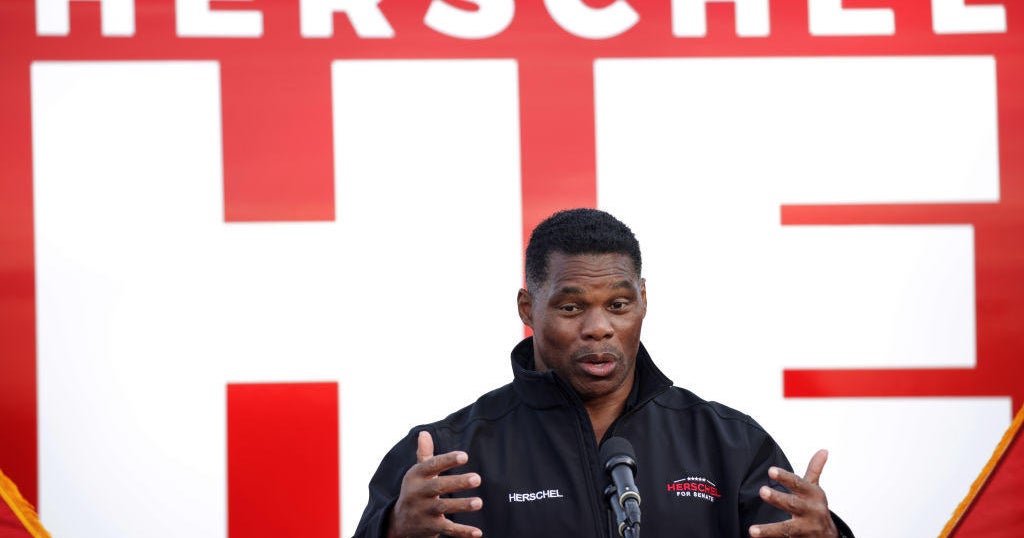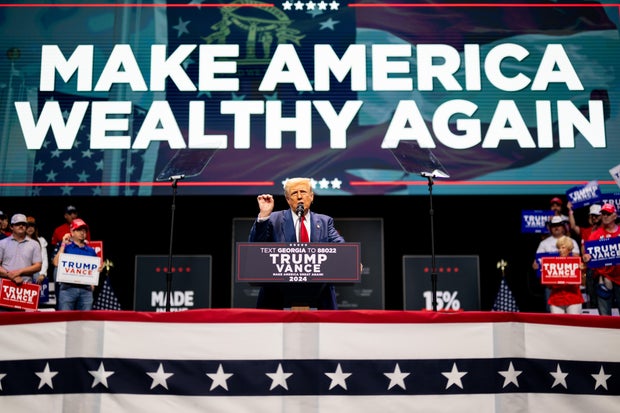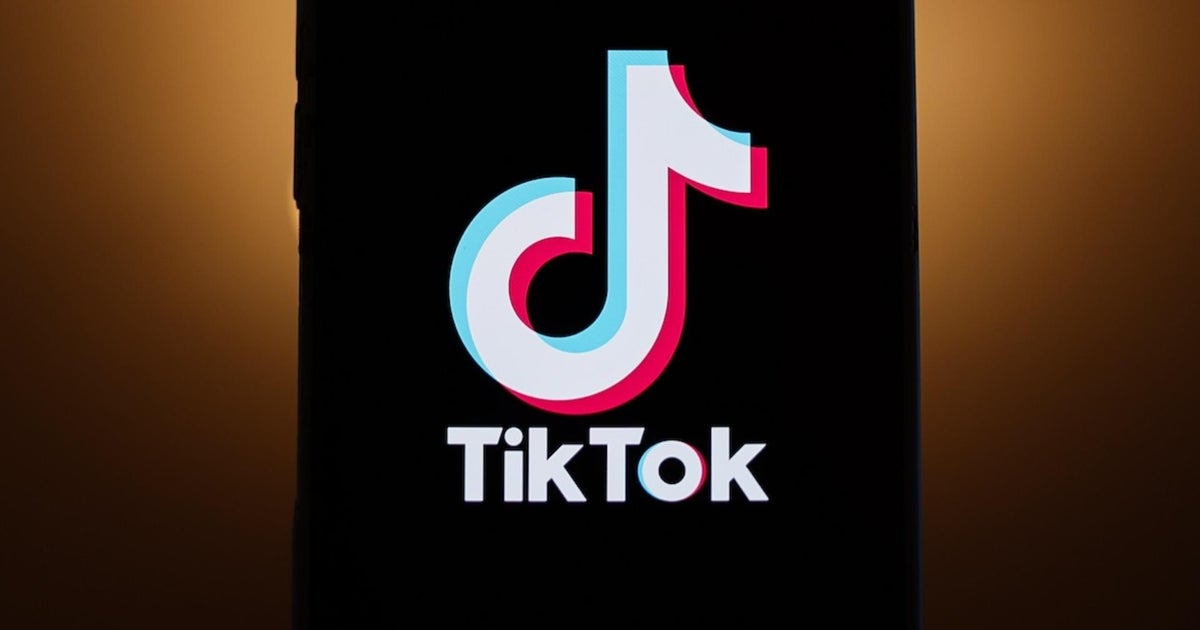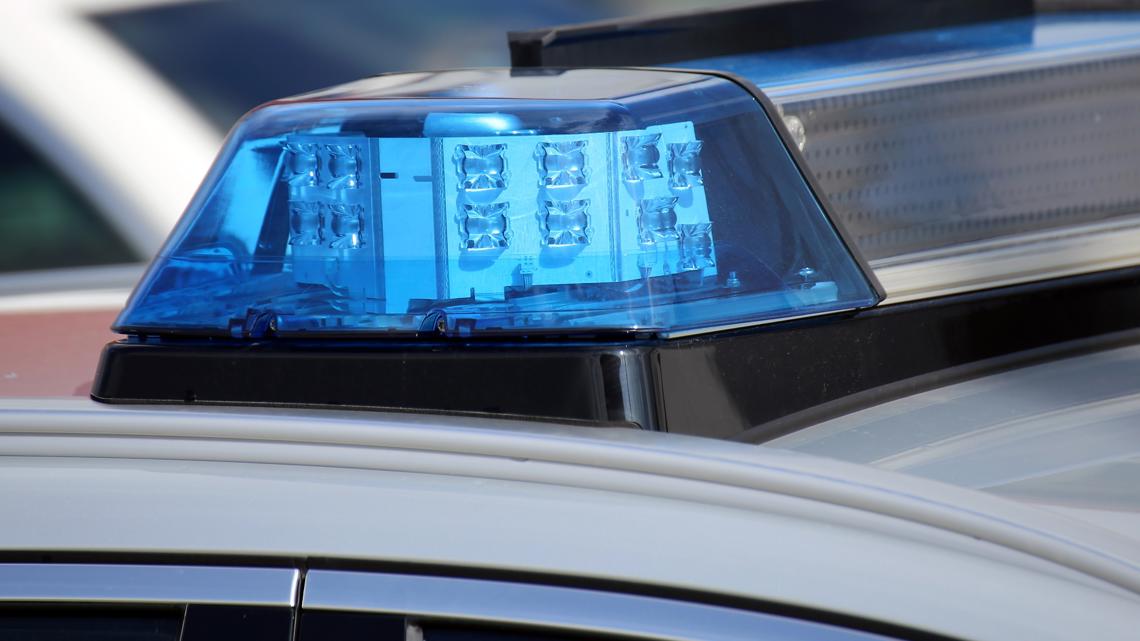CBS News
Trump vows to “take other countries’ jobs” in economic speech, pitching ideas from his presidency

Savannah, Georgia — Former President Donald Trump on Tuesday spoke about his manufacturing agenda and announced incentives to bring manufacturing jobs back to the U.S., several of which he implemented as president and had mixed results.
Speaking in Savannah, home of one of the busiest ports in the U.S., Trump promised, “Georgia and Savannah are going to be right in the center of the action. We’re going to rebuild our manufacturing, and it’s going to happen fast and beautifully.”
The economy is one of the top issues for voters nationwide and in the battleground state of Georgia, and Trump and Vice President Kamala Harris have offered some targeted economic proposals. Harris plans to announce more details about her plans for the economy Wednesday.
Trump said U.S. companies would get expanded research and development tax credits, which was part of the 2017 tax cut enacted during his presidency.
“You’ll be able to write off 100% of the cost of heavy machinery and other equipment in the first year and full expensing for new manufacturing investments,” Trump said of his plan.
BRANDON BELL / Getty Images
This proposal, known as 100% bonus expensing, is something that was enacted as part of the R&D tax credits. It enables businesses to write off 100% of the cost of a machinery or equipment investment in the first year, rather than amortizing it over a five-year period.
The former president also claimed his administration would “take other countries’ jobs” with the economic incentives he is offering.
“We’re going to take their factories,” Trump said Tuesday. “We’re going to bring thousands and thousands of businesses and trillions of dollars in wealth back to the good old USA.”
“Under the plan, American workers will no longer be worried about losing your jobs to foreign nations,” he said. “Instead, foreign nations will be worried about losing their jobs to America.”
Trump said he would put a “100% tariff” on cars coming from Mexico. Several major automakers — including General Motors, Ford, Nissan, Volkswagen and Toyota — have manufacturing facilities in Mexico, and tariffs in general are unpopular among Republicans. His former adviser Gary Cohn said on “Face the Nation” earlier this month that while tariffs are an “important instrument” for a president, they could lead to inflation.
A number of Republicans do not share Trump’s enthusiasm for tariffs, including Senate Minority Leader Mitch McConnell, who said Tuesday he’s “not a fan of tariffs.”
As president, Trump imposed a range of tariffs on foreign goods, including solar panels, washing machines, apparel, and steel and aluminum, arguing that they’d help safeguard U.S. jobs. But many economists said this surge in protectionism triggered retaliation from China, heightened tensions with other key trading partners and increased uncertainty in trade policy, dampening U.S. growth.
A study this year by some of the world’s top economists evaluated the impact of Trump’s 2018-2019 tariffs and whether they restored jobs to the U.S. and won support from voters. It found that the net effect of the import and retaliatory tariffs in the areas that were affected by the trade war “was at best a wash, and it may have been mildly negative.”
The report said that the import tariffs “had either insignificantly negative or insignificantly positive employment effects,” and the retaliatory tariffs “had a consistent and significant negative employment impact.” However, the trade war succeeded in “strengthening support” for the GOP, the study said, finding that those who lived in the target-protected areas “became less likely to identify as Democrats and more likely to vote for President Trump.”
Trump also touted his pitch to lower the corporate tax rate from 21% – which was cemented as law under Trump’s 2017 tax plan – to 15% to incentivize companies to manufacture in the U.S.
As part of an effort to entice U.S. companies to bring their production back to the states, Trump is proposing creating “special zones” on federal land that would be designated for American companies and feature lower taxes and regulations, but he offered no details about this plan.
In an olive branch to Georgia’s Republican Gov. Brian Kemp, who Trump previously called a “bad guy” and whom he campaigned against in 2022, Trump praised Kemp as “fantastic” and thanked Kemp “for his great support.” In 2020, Trump became the first Republican to lose Georgia in a presidential race since 1992, and he later placed a call to Kemp asking him to convene a special session of the Georgia legislature to overturn the election results, which Kemp refused.
But tensions between the two had already been easing. Before Trump last visited Georgia in early August, he offered to work with Kemp to deepen the port of Savannah. Although the port of Savannah is still one of the largest ports in the country, the city had been in a period of decline before a revitalization push from the Savannah College of Art and Design and tourism toward the end of the 20th century.
“We’ll work with your governor, and we’re going to get that done very quickly,” Trump said Tuesday.
Trump also thanked Kemp for his support even though the Georgia governor was campaigning in Pennsylvania with Senate candidate Dave McCormick.
This is Trump’s sixth visit to Georgia during the 2024 presidential campaign cycle, one of the most contentious battleground states.
CBS News polling shows the race in Georgia between Trump and Harris is a toss up.
CBS News
1 killed, 9 injured in shooting, fiery crash in Baltimore suburb of Towson, police say

BALTIMORE — One person was killed and nine others injured in a shooting and fiery crash in the Baltimore suburb of Towson Tuesday night, authorities said.
Law enforcement responded at around 7:15 p.m. in the 8500 block of Loch Raven Boulevard, Baltimore County Police Chief Robert McCullough said in a news briefing.
“It appears to be a mass shooting incident,” McCullough told reporters. “We have multiple persons who were shot. Right now, we are determining the circumstances and the conditions in this case.”
The first arriving officer found a vehicle on its side in flames near a funeral home, McCullough said, and then several gunshot victims were found in the area.
“There appears to be some type of incident that led to the vehicle crashing and catching on fire,” McCollough said. “Investigators are looking into the circumstances leading up to that.”
The name of the person killed and the manner of death was not released, nor were the conditions of the nine people injured. McCollough did not specify how many of the nine people injured were gunshot victims.
At this time, investigators believe this was an isolated and targeted incident, with no further threat to the community, he added. It’s unclear if any suspects have been arrested. There was no word on a possible motive.
“We will leave no stone unturned and we will dedicate every resource to this,” McCullough said. “We don’t generally see incidents like this in our community in Baltimore County. I assure you as your police chief that we will put all resources toward trying to clear this case.”
The Bureau of Alcohol, Tobacco, Firearms and Explosives was at the scene assisting police, as was the Baltimore County Fire Department.
“This is an incident that is shocking, particularly for those of us in Baltimore County,” said Baltimore County Executive Johnny Olszewski. “These types of incidents are unheard of here, so it really shocks the conscience. However, we want our residents to know that we are, as always, fully committed to ensuring that both our fire and police departments have the full support and all the resources they need from the Baltimore County government to ensure that they bring this investigation to a conclusion.”
Anyone with information is asked to call Baltimore County Police at 410-887-4636.
CBS News
Trump taps Herschel Walker for ambassador to the Bahamas

President-elect Donald Trump announced he will nominate Herschel Walker, the former football player whose 2022 Senate run was plagued by controversy, to serve as U.S. ambassador to the Bahamas.
“Herschel has spent decades serving as an Ambassador to our Nation’s youth, our men and women in the Military, and athletes at home and abroad,” Trump said on social media Tuesday night.
Walker would need to be confirmed by the Senate to assume the role. The Senate has not confirmed a U.S. ambassador to the Bahamas in over a decade. Former President Barack Obama had nominated Cassandra Butts for the role in 2014, but the Senate never even brought her nomination up for a vote, according to The Associated Press. She died in 2016.
Trump in his first term nominated Doug Manchester in 2017 for the ambassador role, but his nomination stalled for over two years. CBS News in 2019 also uncovered evidence of a possible pay-to-play scheme for the role. He eventually withdrew and Trump went on to nominate William Douglass in 2020. Douglass’ nomination was withdrawn by President Biden when he took office, and Mr. Biden in turn nominated Calvin Smyre, who has not been confirmed by the Senate.
Absent an official ambassador to the Bahamas, Kimberly Furnish currently serves in the role of Chargé d’Affaires.
Walker rose to national prominence as a star running back for the Georgia Bulldogs, winning the Heisman trophy in 1982. He spent his first few years of professional ball in the United States Football League before it folded, and then moved on to the NFL.
Walker reentered the national spotlight when, at Trump’s urging, he challenged Georgia’s Democratic Senator Raphael Warnock for his seat in 2022. The race featured several controversies, including two women claiming that Walker — who was running as an anti-abortion candidate — had paid for them to get abortions.
Walker denied both allegations.
In one instance, Walker admitted to writing a check for a woman who said he paid for her to get an abortion in 2009, but he said he hadn’t known what the money was for.
Another woman claimed Walker paid her to get an abortion while the two carried out a six-year relationship while he was married to another woman and playing in the NFL. During a news conference back in 2022, she said she couldn’t go through with the procedure when she went to get it herself, so Walker took her to a clinic in the Dallas area the next day and waited for her while she got the abortion.
“This was a lie a week ago and it is a lie today,” Walker said at the time following an interview the woman gave a week after the initial news conference.
Warnock would go on to win the election in a runoff after neither candidate received more than 50% of the vote on election day.
Aaron Navarro and
contributed to this report.
CBS News
1 killed, 9 injured in mass shooting in Baltimore suburb of Towson, police say

BALTIMORE — One person was killed and nine others injured in a mass shooting in the Baltimore suburb of Towson Tuesday night, authorities said.
Law enforcement responded at around 7:15 p.m. in the 8500 block of Loch Raven Boulevard, Baltimore County Police Chief Robert McCullough said in a news briefing.
“It appears to be a mass shooting incident,” Baltimore County Police Chief Robert McCullough told reporters. “We have multiple persons who were shot. Right now, we are determining the circumstances and the conditions in this case.”
The first arriving officer found a vehicle on its side in flames, McCullough said, and then several gunshot victims were found in the area. The name of the person killed was not released, and the conditions of the nine people injured was unknown.
At this time, investigators believe this was an isolated and targeted incident, with no further threat to community at this point, he added. It’s unclear if any suspects have been arrested.
The Bureau of Alcohol, Tobacco, Firearms and Explosives is at the scene assisting police, as was the Baltimore County Fire Department.
Anyone with information is asked to call Baltimore County Police at 410-887-4636.
This is a developing story and will be updated.








